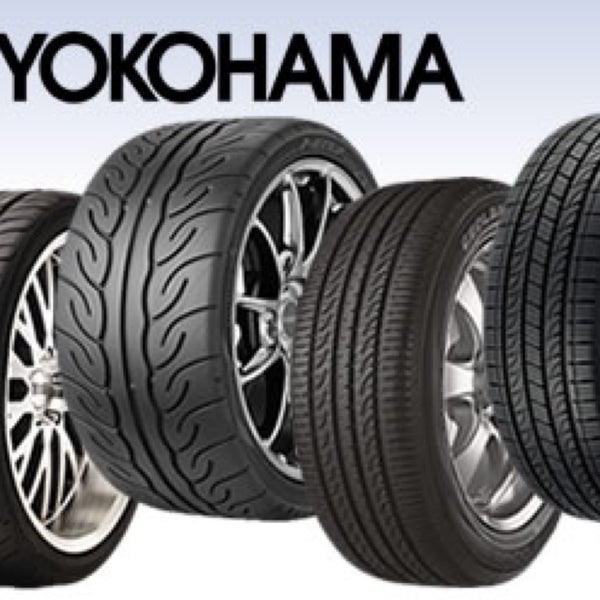Everyone wants to get the best value for their money, even in buying tires. It would be great if we could save up some cash without sacrificing too much quality.
In this Yokohama vs Michelin tires comparison, we will look at the products as well as the overall value that they offer to their customers. Although Michelin is a much bigger brand, Yokohama also produces high-quality tires. Let’s see how this matchup turns out.
Table of Contents
Yokohama
Pros
Cons
Michelin
Pros
Cons
The Yokohama Rubber Company, Ltd. is a Japanese company founded in 1917. It started as a joint venture between Yokohama Electric Cable Manufacturing and BF Goodrich.
One significant event in Yokohama’s history was when they supplied tires for two Japanese automakers, namely Nissan and Toyota. This led to them being one of the leading rubber companies in Japan.
As a manufacturer with over a century of experience in the tire industry, Yokohama has achieved a lot of success. Their ADVAN tire line became a favorite of consumers, which helped them gain more popularity.
Michelin is one of the world’s largest tire manufacturers. This company began in 1889 in France as a rubber company specializing in farm equipment.
They are known for their innovations that greatly improved the tire industry. This includes the invention of the removable pneumatic tire in 1891. This tire was used by the winner of the first long-distance cycle race.
In 1934, Michelin invented the run-flat tire, which allows vehicles to run even when they have a punctured tire.
Over ten years later, the company introduced the radial tire to the world. This was an invention that caused a great improvement in the handling and fuel economy of the tires.
In this part, I will compare Michelin vs Yokohama tires head to head to determine which product has the better overall performance. I will also include their differences in terms of longevity, warranty, and cost.
Dry performance is not a problem for any Michelin tires. However, we should not overlook the quality of Yokohama tires. I will compare Yokohama Avid Ascend LX vs Michelin Defender T+H for this category.
These tires are both standard all-season touring tires.
The Avid Ascend LX provides great traction and braking, although it is slightly behind the Defender T+H in these features. The steering could also be slower with the Yokohama tire than its competitor.
The tire from Michelin came out on top in terms of dry performance. Although it is just a slight advantage, it is important to consider if you want a better driving experience.
Although it is just a slight advantage, it is important to consider if you want a better driving experience.
For wet performance, we can look at the ultra high-performing all-season tires from these two brands. They are the Yokohama ADVAN Sport A/S vs Michelin Pilot Sport A/S 4.
The Yokohama Advan Sport A/S meets the expectations for a performance-focused tire. It has the right amount of handling stability and cornering traction on wet surfaces.
However, the Michelin Pilot Sport A/S 4 is far ahead in terms of wet performance. It has superb steering responsiveness and traction. The wet braking is arguably the best in its tire class.
For this part, we are going to look at how the two brands’ all season tires perform on snow. A fair matchup would be Yokohama YK-HTX vs Michelin LTX MS2. They are both highway tires that are used for pickups, crossovers, and SUVs.
Both of these tires are not labeled with the 3 Peak Mountain Snowflake (3PMSF) marking.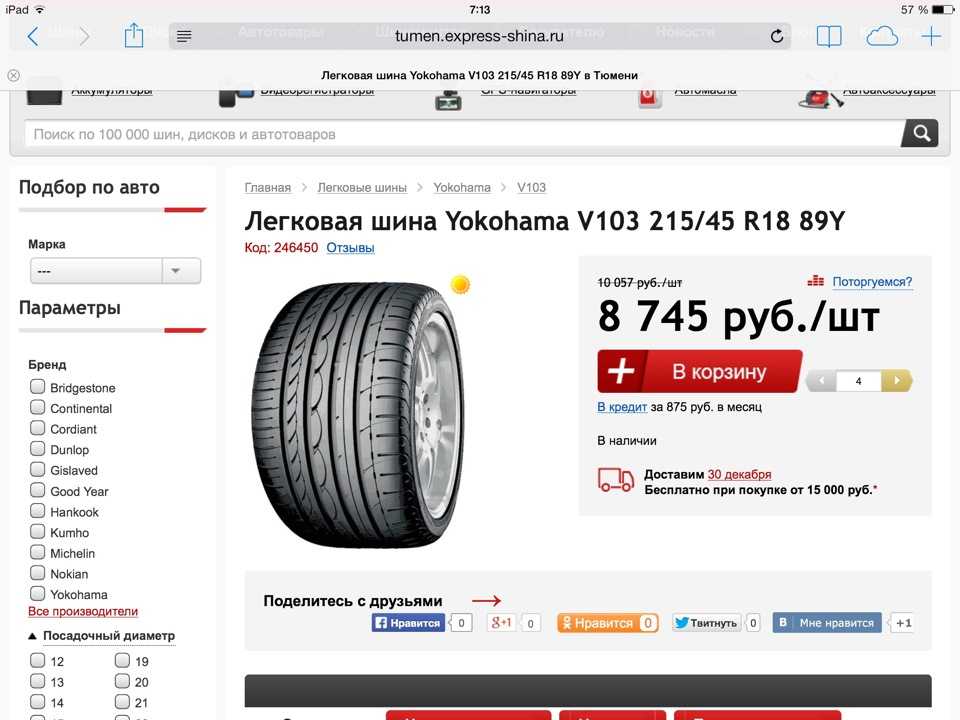 This means that they are not suitable for driving in deep snow.
This means that they are not suitable for driving in deep snow.
However, the Michelin tire has an advantage on light snow. The YK-HTX could also be good, depending on how extreme the snow is, but it will not be as good as the LTX MS 2.
To compare Yokohama and Michelin tires in terms of comfort, we can go back to the above-mentioned standard touring all-season tires, the Avid Ascend LX and Defender T+H.
Both of these tires will never give you problems regarding road noise, although the Defender tire may be a little less vocal.
The level of comfort on the road is close, with the tire from Yokohama getting a slight edge. It greatly absorbs rough parts of the road, allowing a smoother ride than its competitor.
It is almost even for the two tires that have been compared in this category. However, I think the tire from Yokohama wins due to the more luxurious ride that it offers.
Aside from tire maintenance, other factors that affect longevity are durability and even treadwear of the tires.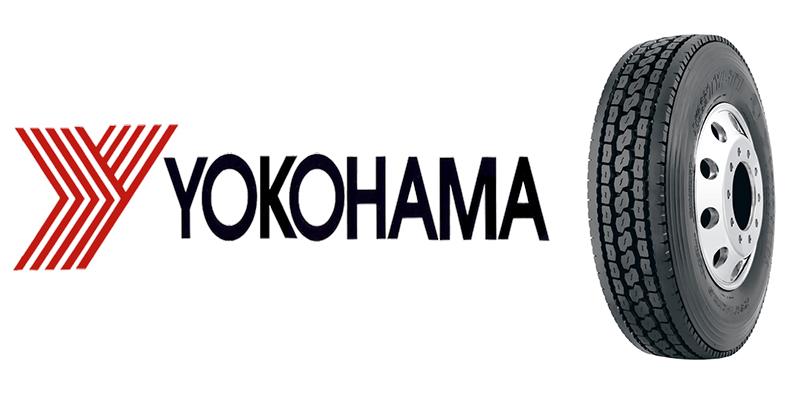 This is what Michelin Defender tires are known for. So in this part, we will look at Yokohama tires vs Michelin Defender.
This is what Michelin Defender tires are known for. So in this part, we will look at Yokohama tires vs Michelin Defender.
We can use Uniform Tire Quality Grading (UTQG) as a basis for the tread life of the two. The treadwear score of the Defender T+H in this rating system is 820.
Among the all-season touring tires from Yokohama, the closest treadwear score is from the Avid Ascend LX with 800, followed by the Avid Ascend GT with 740, and Avid Touring-S with 620.
The treadwear scores from the all-season touring tires of Yokohama are decent, but the Defender T+H still came out on top.
Read more: Average lifespan of Michelin tires.
Together with the warranty that a company gives is the confidence they have in their product. This means that the better the warranty offered, the higher the chance that a tire will live up to its expectations.
Between Yokohama and Michelin, Michelin is the one that provides better tire warranties. Michelin is offering longer satisfaction guarantees with 60 days while Yokohama offers only 30 days.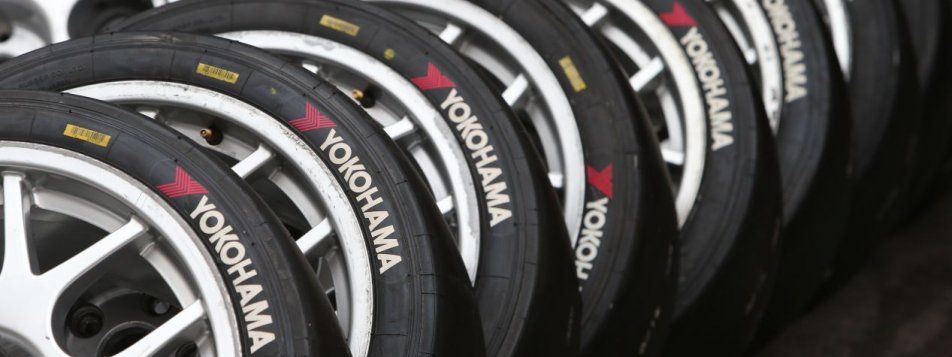
However, Yokohama is just following industry standards, so we can’t say that they are not confident in their tires.
That said, some of the brands’ models have the same treadwear warranties, such as the Avid Touring-S and Energy Saver A/S at 65,000 miles.
If we are going to look at the prices, tires from Michelin are more expensive than those from Yokohama. For example, the price of Yokohama’s Advan Sport A/S+ starts at about $130 while the Michelin Pilot Sport A/S 4 is about $175.
Aside from the brand name, Michelin ensures that their tires are of premium quality, so the prices are reasonable. This doesn’t mean that Yokohama tires lack value; they are still a great option if you want to save money while not compromising on performance.
It will be helpful to hear what most customers say about the products of these two brands. So I included here the highlighted features of Michelin and Yokohama tires based on the reviews from retail sites and online communities like Reddit.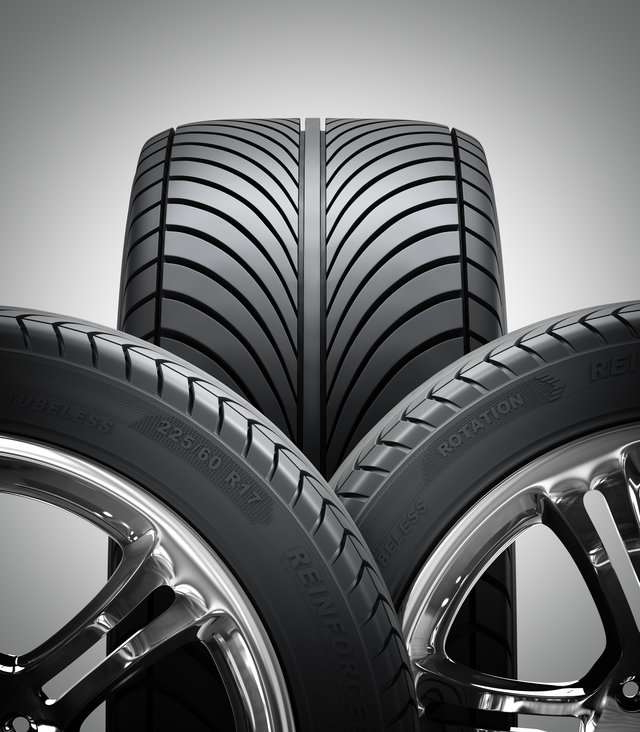
Which is better, Yokohama or Michelin?
Michelin is one of the leading companies in the tire manufacturing industry. This means that if you are aiming for better tire quality, technology, and performance, Michelin is your brand.
However, if you are considering the price, Yokohama is a great option as well. Although their tires might not be as good as the Michelin in some aspects, they are still excellent options that can give you a great experience on the road.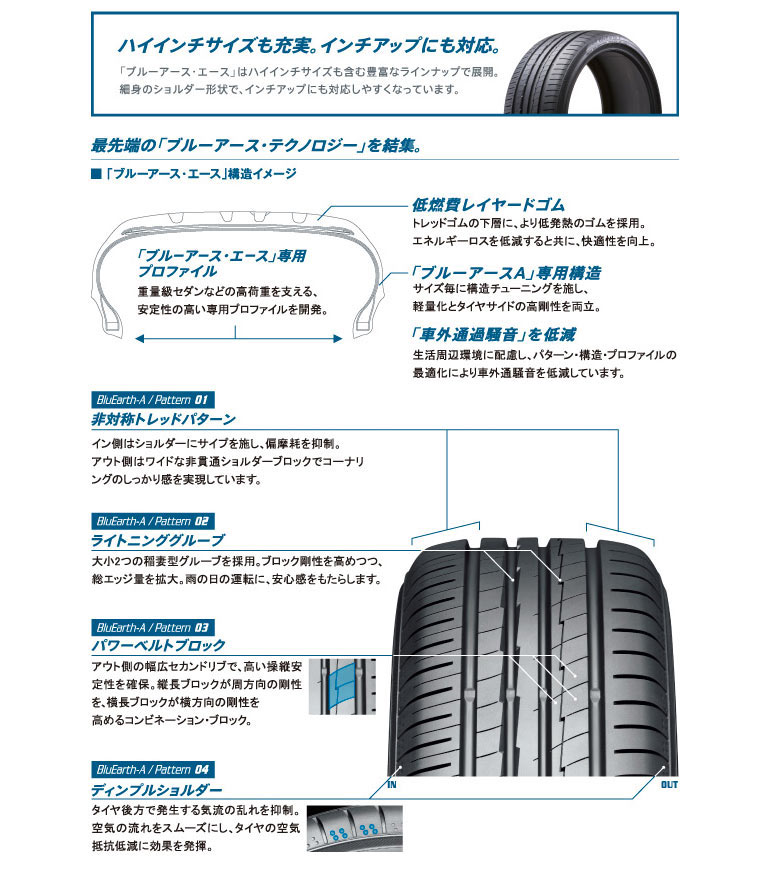
Are Yokohama tires really good?
Yokohama tires are a cost-effective alternative to products from bigger brands. Their designs have many positive reviews on different retail sites, especially their performance and all-season tires.
Is Yokohama a premium tire?
Currently, Yokohama is the 8th largest tire producer in the market. This means that their products can be classified as premium.
However, there are some countries where they are not so popular, such as the UK. This can be due to the limited availability of their products there.
In most of the categories that I included here, Michelin won against Yokohama. This shows why they are the more popular brand among these two. However, you should not entirely close your doors to Yokohama.
This shows why they are the more popular brand among these two. However, you should not entirely close your doors to Yokohama.
As I have mentioned in this Yokohama vs Michelin tires comparison, the tires from Yokohama are still a cost-effective alternative as they also have great overall performance. Now, it is up to you to decide. I hope this article was able to help.
Affiliate disclosure: Automoblog and its partners may be compensated when you purchase the products below.
Yokohama tires are an excellent option for the eco-conscious driver. The company is one of the most sustainable tire manufacturers in the industry, both in its production and its products.
In this Yokohama tires review, we’ll take a look at the brand as a whole, discussing the company’s background, its industry ratings, most popular models, tire costs, and more. Tires are often an expensive investment, so it’s worth taking the time to research different companies before deciding which tire is best for you.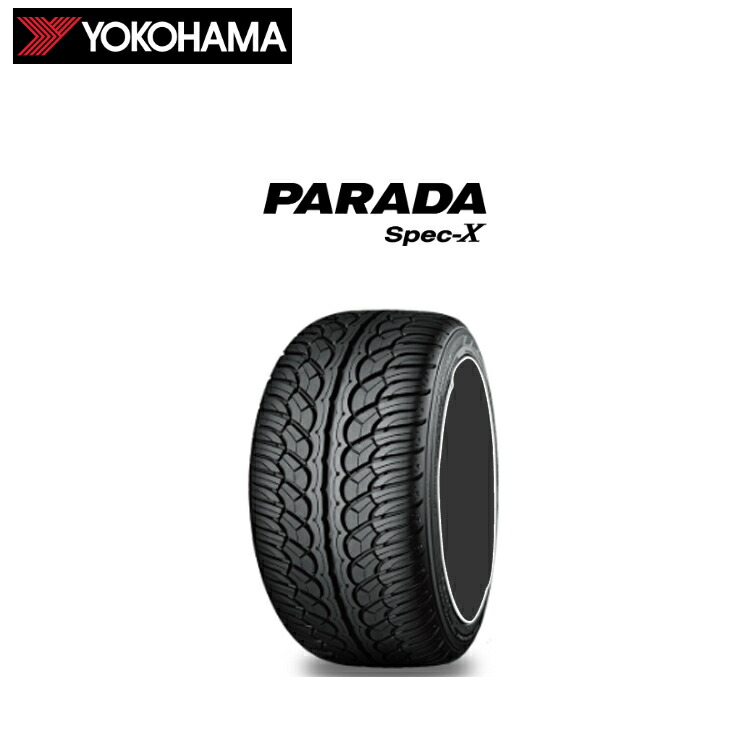
Our review team researched and ranked the best tires and brands on the market. Yokohama tires ranked eighth in our review. If you’d like to know what companies beat out Yokohama, we encourage you to read the article. You can also compare tire brands at TireRack.com.
Founded in 1917 as a joint venture with BFGoodrich, Yokohama is a Japanese tire manufacturer headquartered in Tokyo. In the ‘80s, after establishing itself as a credible U.S. tire manufacturer, Yokohama split from BFGoodrich. Currently, Yokohama is the eighth-largest tire manufacturer in the world, according to the 2019 Tire Business Global Tire Company Rankings.
Yokohama is one of the more sustainable tire manufacturers in the industry. The company has made efforts in recent years to reduce greenhouse gas emissions and landfill waste as well as lowered many of its models’ rolling resistance to increase fuel efficiency.
Across the board, Yokohama produces high-quality models including some of the best all-season tires, all-terrain tires, and winter tires on the market.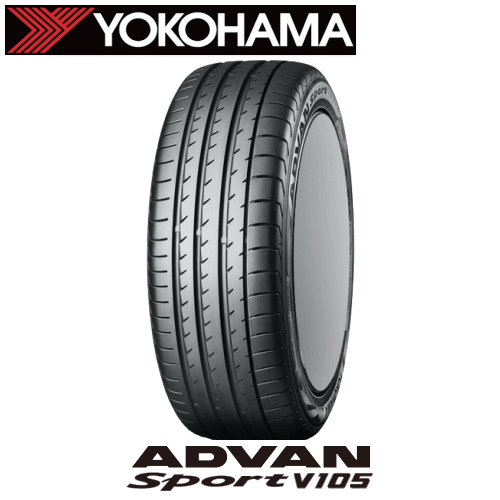
Like all tires on the road today, Yokohama tires are graded for quality based on an evaluation system created by the National Highway Traffic Safety Administration (NHTSA). This system is called Uniform Tire Quality Grading (UTQG), and it grades tires – except specialized tires – based on their treadwear, traction, and temperature resistance.
Here’s an explanation of the UTQG grading system:
Treadwear: This grade estimates the longevity of your tires. To calculate treadwear, tires are measured against a control tire given a rating of 100. If a tire has a 500 treadwear rating, that means it lasted five times longer than the control. Most passenger tires have between a 300 and 500 treadwear rating, according to data from SaferCar.gov.
Traction: This grade measures how well your tires “grip” a wet road. Traction grades are given on a scale of AA, A, B, or C. Good day-to-day passenger tires typically receive A ratings.
Temperature: This grade evaluates a tire’s heat resistance on a scale of A, B, or C. Tires need to withstand different temperatures based on their specialization. High-performance tires, for example, usually move at much higher speeds than all-season tires, and in turn, have higher temperature ratings.
It’s important to note that the NHTSA does not oversee UTQG tests. Manufacturers and independent companies hired by brands are responsible for tire testing and reporting.
Below, we’ve listed a few top-rated Yokohama tire models and their treadwear, traction, and temperature scores using data from SaferCar.gov.
| Yokohama Tire Model | Tire Type | Treadwear Score | Traction Score | Temperature Resistance |
|---|---|---|---|---|
| AVID Touring-S | Passenger Standard touring All-season | 620 | A | B |
| Geolandar A/T G015 | Light truck/SUV All-terrain | 600 | A | B |
| ADVAN Sport A/S | Passenger Ultra-high performance All-season | 180 | A to AA | A |
| Parada Spec-X | Light truck All-season | 420 | A | A |
If you want to know the UTQG scores for your current tires, they can be found on the tires’ sidewalls.
The most popular Yokohama tires span a few tire categories. Though the tire manufacturer is known for its performance and touring tires, its highest-rated tires include an all-terrain tire and a sporty truck tire as well.
Backed by Tire Rack customer reviews and industry ratings, here are Yokohama’s four most popular tires:
Each of these Yokohama tire models holds at least a 4. 0 out of 5.0-star rating from customers on Tire Rack, as well as excellent industry reputations.
0 out of 5.0-star rating from customers on Tire Rack, as well as excellent industry reputations.
Yokohama mainly produces replacement tires but has stepped into the original equipment (OE) tire space relatively recently. According to a 2020 Modern Tire Dealer interview with Yokohama president Jeff Barna, the company expects substantial growth in OE partnerships moving forward.
Yokohama’s tread life warranties are standard in the industry, averaging around 50,000 miles. The tire manufacturer’s six-year limited warranty for replacement tires is also in line with competitors.
Yokohama tires aren’t the cheapest, nor are they the most expensive. However, the company’s more resilient tires offer great long-term value. In a 2016 Consumer Reports study comparing all-season tires’ cost versus longevity, the Yokohama AVID Ascend (T) tire came in second place. Though the tire cost $93, it lasted for 85,000 miles.
Here are the costs of Yokohama’s most popular models on Tire Rack:
 69 (P205/60R16)
69 (P205/60R16)Yokohama tire reviews are mostly positive, though the company’s performance tires tend to have higher ratings than other models. In the J.D. Power 2020 U.S. Original Equipment Tire Customer Satisfaction StudySM for passenger tires, which rated tires based on wear, ride, traction, handling, and appearance, Yokohama scored 718 out of a possible 1,000 points. This score was above the industry average – 712 points – placing Yokoma just behind Pirelli, Michelin, and Firestone tires.
Below are a few customer reviews from Tire Rack to give you a better idea of how Yokohama tires perform on the road.
“[Yokohama’s Parada Spec-X] tires made my Camaro ride like a dream. [They are] so smooth and responsive. The grip felt so sure-footed on dry roads, it felt like it could climb a wall and looked good, too. They shed water like nobody’s business and worked very well on sandy roads and light snow.”
The grip felt so sure-footed on dry roads, it felt like it could climb a wall and looked good, too. They shed water like nobody’s business and worked very well on sandy roads and light snow.”
– via Tire Rack
“I bought [Yokohama AVID Ascend GT] tires mostly looking for low noise, decent traction and excellent tread wear. They have not disappointed … I feel confident that they enhance the safety of [my wife’s] car and perform better than most every tire that we have installed on her 150,000-mile car.”
– via Tire Rack
“While I had high hopes for this tire, after just eight track days it started to become much stiffer and no longer delivered the ultimate grip that it had when I first bought it. Looking over other reviews, it seems that heat cycling (from successive track days) is the ultimate death for the [Yokohama ADVAN A048].”
– via Tire Rack
“The big problem [with the Yokohama Advan Sport] is that the rubber is so soft that you should expect to have them last two summers or 10,000 miles, whichever comes first. At the beginning of September, I was driving under wet conditions (not monsoon but a mild steady rain) and at 70 mph, my car began hydroplaning and then fishtailing wildly.”
At the beginning of September, I was driving under wet conditions (not monsoon but a mild steady rain) and at 70 mph, my car began hydroplaning and then fishtailing wildly.”
– via Tire Rack
We rate Yokohama tires 4.0 out of 5.0 stars. We like the company’s wide tire variety and steps toward sustainability. Many Yokohama models are well priced, though tread life warranties are relatively standard and Yokohama customer reviews aren’t as high as other providers we’ve reviewed.
To start shopping for Yokohama tires, visit TireRack.com.
If you’re looking for other top-rated tire manufacturers to compare with Yokohama, we recommend Michelin and Cooper. Both companies are well-regarded in the industry but cater to different needs. Michelin tires are durable and long-lasting, and the company has a wide range of high-quality models. However, if you’re looking for an affordable alternative, we recommend Cooper tires.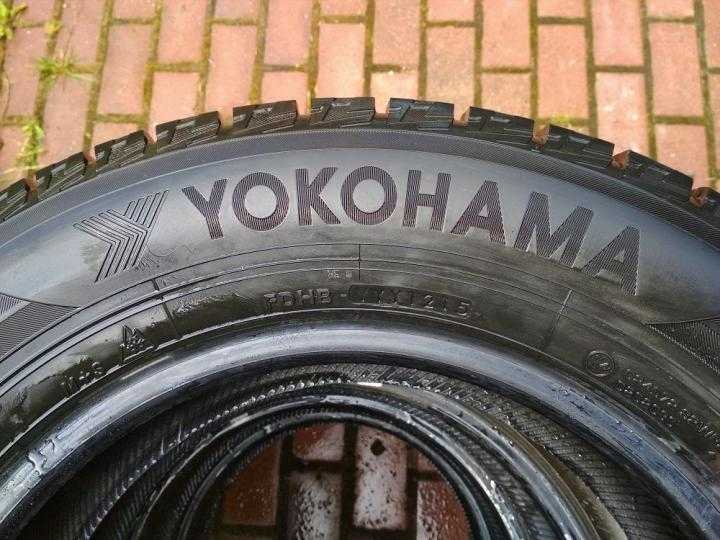
In our recent industry-wide review of the best tires, we named Michelin the best overall brand on the market. We like the company’s tire variety, durability, and century-long history in tire manufacturing and production. Whether you need an all-season tire or an all-terrain tire, Michelin has plenty of choices.
Shop for Michelin models on TireRack.com.
Cooper tires are a great choice if you’re looking for affordability. For passenger and light truck/SUV tires, Cooper models are always competitively priced. However, the company specializes in replacement tires, so you’re out of luck if you want to purchase an OE tire.
Shop for Cooper models on TireRack.com.
14 reviews Gennady
Tires Yokohama BluEarth-Es ES32
Benefits
Rain operation, quiet
Drawbacks
No
Good grip, all corners work out reliably. The tread handles water better than expected. 100 km on asphalt immediately after the rain - just on the way. Not noisy, soft. I like how they work at speeds. It climbs out of the rut easily, most of the bumps on the pavement are not felt.
The tread handles water better than expected. 100 km on asphalt immediately after the rain - just on the way. Not noisy, soft. I like how they work at speeds. It climbs out of the rut easily, most of the bumps on the pavement are not felt.
Read review
13 reviews Elizabeth
Tires Yokohama IceGuard Stud IG55
Advantages
The tires have fully met expectations. The spikes don't fall out. Quiet, keep the car on any surface
Drawbacks
Not noticed yet
Ideal value for money. Special thanks to the On Wheels team for the speed and quality of service.
Special thanks to the On Wheels team for the speed and quality of service.
Read review
10 reviews Sergey Aleksandrovich
Tires Yokohama Advan Sport V105S
Features
Compared to the Yokohama Advan Sport V103S, the V105S is noticeably quieter. Excellent handling and grip on asphalt.
Disadvantages
Not found yet.
If 100% control in corners and at speeds over 220 km/h is important, this is what you need.
Read review
9 reviews Oleg Yushkov
Tires Yokohama Advan Sport V105
Advantages
Appearance, grip, driveability
Defects
No
Excellent appearance, strong tread pattern. Equally strong grip in the rain and in hot weather. After a quiet soft rubber, it did not take long to get used to a more elastic and slightly noisy one, but it's worth it.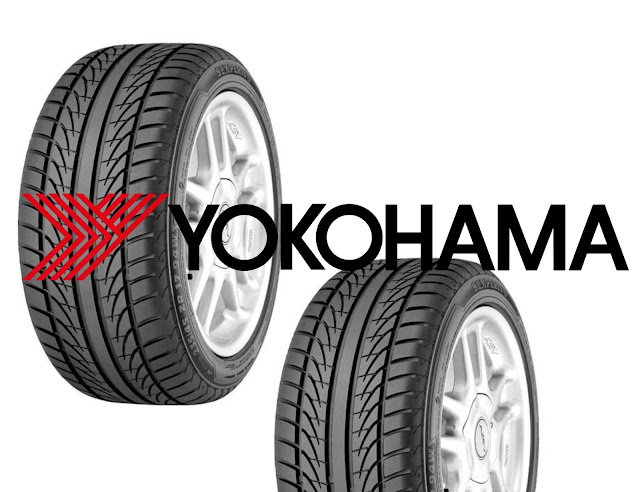 On a clean highway 200 km / h, like coffee in the morning. Top tire, otherwise I can not say.
On a clean highway 200 km / h, like coffee in the morning. Top tire, otherwise I can not say.
Read review
8 reviews Eugene
Tires Yokohama Advan dB V552
Benefits
No noise
Defects
No
Switched from winter to summer too early. I was immediately shocked by the fact that the tire is a chip whose silence is noisy. Now I understand that for some reason I did not focus on temperature.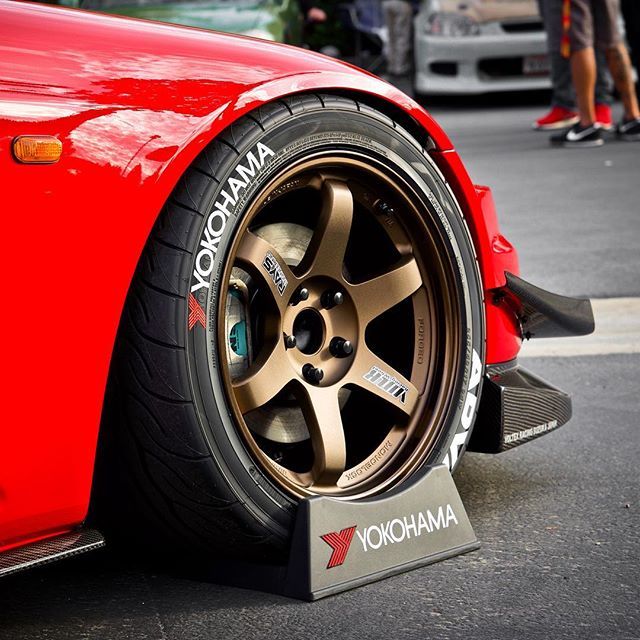 When it got warmer, about +10 and above, the noise of the tires disappeared completely. All you hear is road noise and that's it. In general, fans of silence will come in, but it’s better to put it when it gets warmer. In terms of driving characteristics, complete order even in near-zero weather. They behave obediently. Brake confidently. In acceleration to 100 km / h, it felt like the car dropped for 2 seconds.
When it got warmer, about +10 and above, the noise of the tires disappeared completely. All you hear is road noise and that's it. In general, fans of silence will come in, but it’s better to put it when it gets warmer. In terms of driving characteristics, complete order even in near-zero weather. They behave obediently. Brake confidently. In acceleration to 100 km / h, it felt like the car dropped for 2 seconds.
Read review
8 reviews Sergey
Tires Yokohama Advan Fleva V701
Advantages
Does not fail, strong, price
Disadvantages
None or not yet found
Good premium tyre.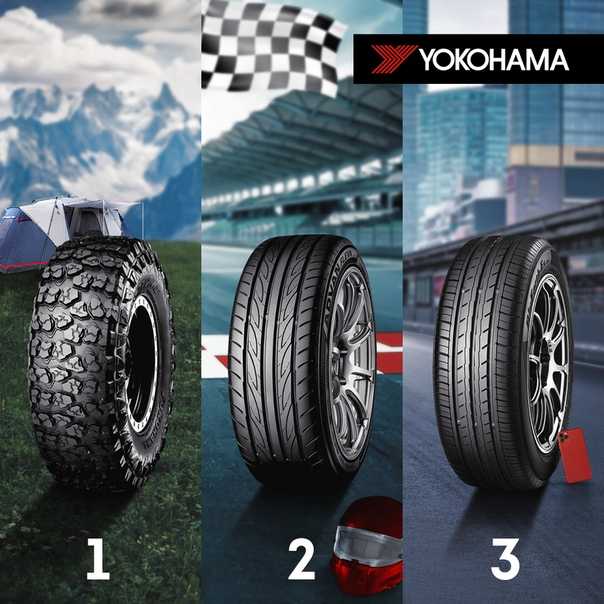 Not noisy. In dry and rainy weather did not let down. Well balanced. Reliability also checked. Herniation resistance is excellent! It's too early to judge by wear and tear. Ran 5000km. There is no noticeable decrease in the tread, and it cannot be on such a run. Overall, a good tire for a reasonable price.
Not noisy. In dry and rainy weather did not let down. Well balanced. Reliability also checked. Herniation resistance is excellent! It's too early to judge by wear and tear. Ran 5000km. There is no noticeable decrease in the tread, and it cannot be on such a run. Overall, a good tire for a reasonable price.
Read review
5 reviews Fedor
Tires Yokohama IceGuard Studless G075
Excellent tires! Skated on it for 60 thousand. km, the tread pattern has not been erased at all, and the grip, accordingly, has not deteriorated)
Read review
3 reviews Egor
Tires Yokohama IceGuard Stud IG65
Advantages
Acceleration and braking on ice
Flaws
Didn't notice
Tires are actively used outside of asphalt.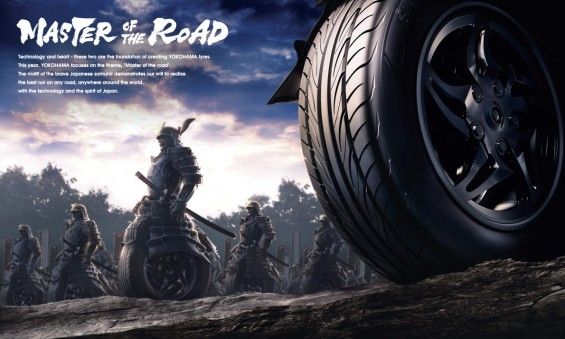 They handle packed snow and ice well. When leaving the track, there is no discomfort. On asphalt they go perfectly and allow you to accelerate well. With braking full order.
They handle packed snow and ice well. When leaving the track, there is no discomfort. On asphalt they go perfectly and allow you to accelerate well. With braking full order.
Read review
2 reviews Stanislav O.
Tires Yokohama IceGuard Studless IG60
Benefits
Braking, quiet, handles rain and snow easily
Disadvantages
At temperatures above +10 they begin to swim
Liked the tires.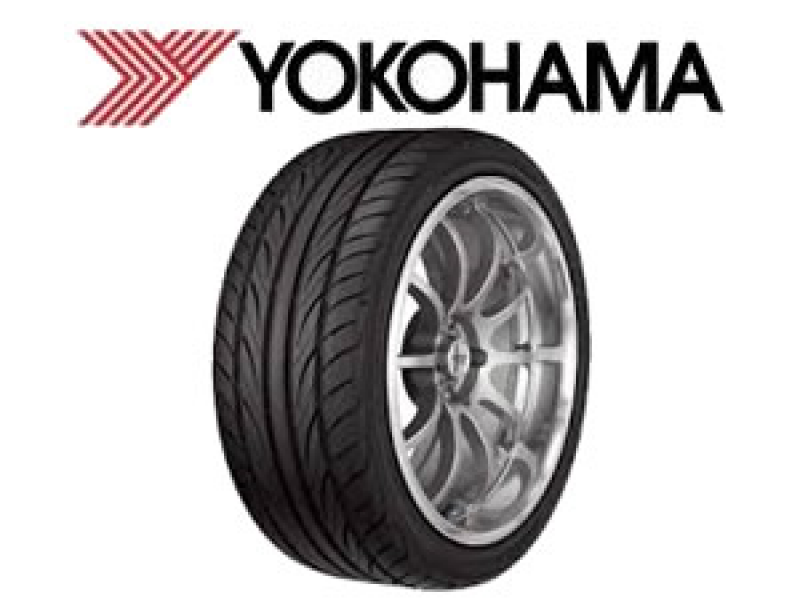 I chose the tread, it seemed reliable. This is true. Braking is good. Drove them about 3000 km. Very quiet. For the European winter, when it snows, then it rains perfectly. With a small plus, they do not lose their properties. There were 2-3 days when the temperature was above +10, that's when they started to swim a little.
I chose the tread, it seemed reliable. This is true. Braking is good. Drove them about 3000 km. Very quiet. For the European winter, when it snows, then it rains perfectly. With a small plus, they do not lose their properties. There were 2-3 days when the temperature was above +10, that's when they started to swim a little.
Read review
2 reviews Alexander
Tires Yokohama Advan Sport V103S
Excellent tires ADVAN SPORT V103S from Yokohama turned out to be 225/55R16. After the purchase, we went to Kaliningrad on a trip, so I had no complaints. The road was excellent. We got into the rain, I thought it would be difficult, I was worried, but the grip is excellent in both wet and dry weather. I was pleased that it can withstand sharp turns, it is well controlled. The cost is fully justified.
The road was excellent. We got into the rain, I thought it would be difficult, I was worried, but the grip is excellent in both wet and dry weather. I was pleased that it can withstand sharp turns, it is well controlled. The cost is fully justified.
Read review
2 reviews Fedor
Tires Yokohama W.Drive WY01
Benefits
Durable, robust
Disadvantages
Not for ice
I'll start with a drawback - it keeps confidently on ice only for a while, then an unpleasant feeling of light skidding begins to appear.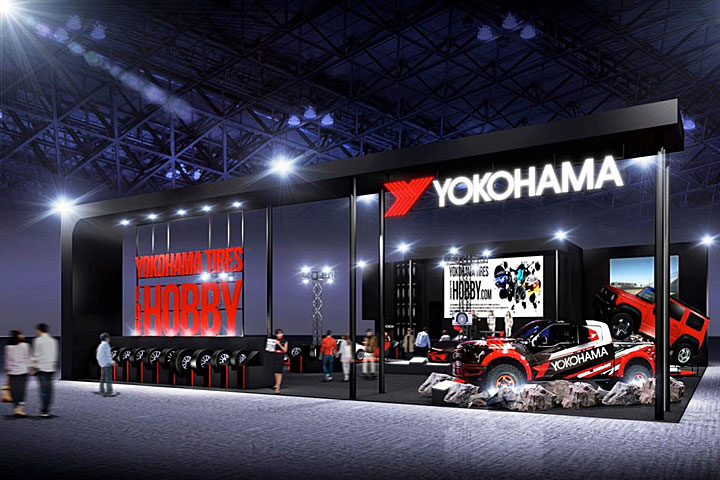 You can drive, but be careful. As for the pros, there are many. Firstly, the tires have been running for 4 winters and have only been tested on ice just now. Maybe it had some effect. Secondly, there were several cases when I touched roots and other unpleasant surfaces, but there were no cuts on the tires. They differ from the state of the new ones only by a barely noticeable wear of the tread. Very quiet, handles wet pavement well.
You can drive, but be careful. As for the pros, there are many. Firstly, the tires have been running for 4 winters and have only been tested on ice just now. Maybe it had some effect. Secondly, there were several cases when I touched roots and other unpleasant surfaces, but there were no cuts on the tires. They differ from the state of the new ones only by a barely noticeable wear of the tread. Very quiet, handles wet pavement well.
Read review
2 reviews Igor V.
Tires Yokohama W.Drive V905
Advantages
Snow braking, acceleration, cornering
Flaws
Didn't notice
Bought at the beginning of the season for Ford Focus. He copes with his task. Good braking on snow. Overclocking is fine too. When cornering on a snowy track does not blow. You can confidently go a little faster than the flow.
He copes with his task. Good braking on snow. Overclocking is fine too. When cornering on a snowy track does not blow. You can confidently go a little faster than the flow.
Read review
1 review Vladimir
Tires Yokohama IceGuard Studless IG60A
Advantages
Price, reliability
Disadvantages
None significant
Mileage on tires exceeded 30 thousand km.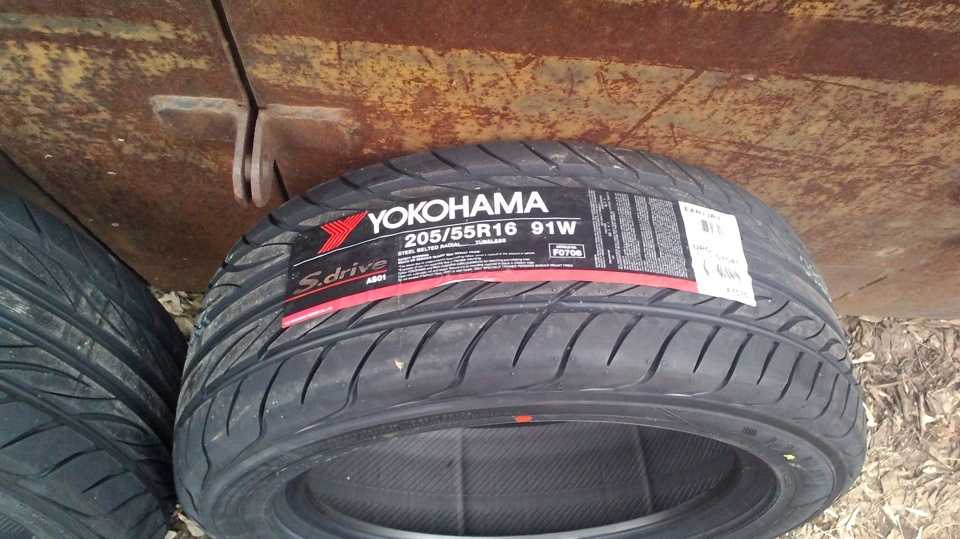 Enough for the rest of this and next season. Tires leave the impression of a good Velcro. Quiet, with good flotation and slow wear. I'm not a calm driver, but the tire is tenacious. For those who ride 90% in the city and 10% on a primer or gravel road is enough for a long time.
Enough for the rest of this and next season. Tires leave the impression of a good Velcro. Quiet, with good flotation and slow wear. I'm not a calm driver, but the tire is tenacious. For those who ride 90% in the city and 10% on a primer or gravel road is enough for a long time.
Read review
1 review Gregory
Tires Yokohama Geolandar H/T G056
The model is super! Since 2015, I have driven 70 thousand km on them, I can say that this is a very durable rubber, I was convinced of this in practice (often I have to drive completely off-road), it is able to withstand very serious loads. So this is the best choice for me
So this is the best choice for me
Read review
1 review Konstantin
Tires Yokohama IceGuard IG50A+
I used 235/50 R18 for my car last year. For the price it turned out quite acceptable - about 36 thousand, I don’t remember exactly. I can say that this rubber is completely worth the money, it has very good driving characteristics, while the noise level is low. I'm used to buying high quality tires, because they are not for one year and I don't want to twitch at every bump
Read review
11 reviews Lipsky Konstantin Andreevich
Tires Yokohama IceGuard IG50+
Features
Traveled all winter (in Moscow). Although in Moscow they clean the snow quickly - even on snowy days - it clung perfectly when braking! A track with water - generally passes as if it were dry. In short, I didn’t even notice winter on this rubber. I recommend 100%
Although in Moscow they clean the snow quickly - even on snowy days - it clung perfectly when braking! A track with water - generally passes as if it were dry. In short, I didn’t even notice winter on this rubber. I recommend 100%
Disadvantages
Perhaps a bit noisy (but my arches themselves are poorly soundproofed). But in general, noise is the prerogative of almost any winter tire.
Read review
7 reviews Stepan
Tires Yokohama IceGuard Stud IG35+
They like to ride on bad roads.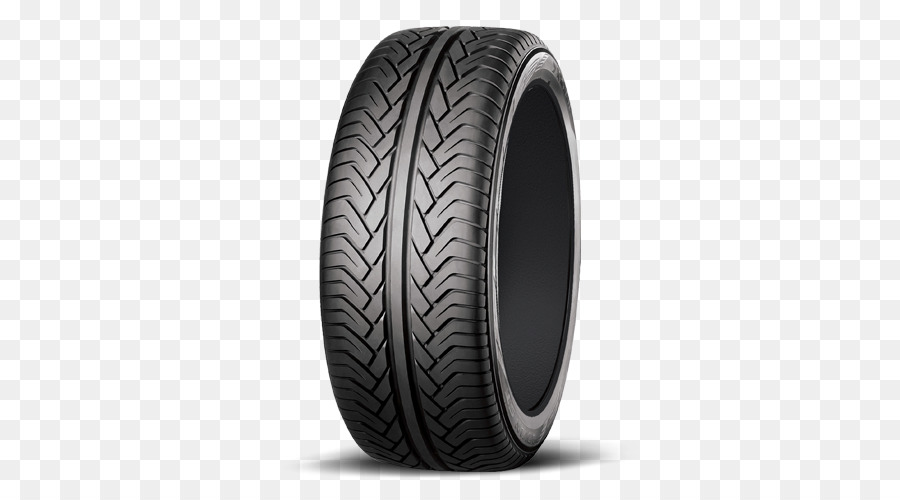 I bought these tires, because in my city they clean the road very badly. If not put, there would be a lot of problems because of the snow porridge on the pavement. And so, and I get faster, and I feel safer when the car does not skid for nothing. Specifically, I bought Yokohama for the winter for the first time, I am very satisfied.
I bought these tires, because in my city they clean the road very badly. If not put, there would be a lot of problems because of the snow porridge on the pavement. And so, and I get faster, and I feel safer when the car does not skid for nothing. Specifically, I bought Yokohama for the winter for the first time, I am very satisfied.
Read review
33 reviews Gleb
Tires Yokohama BluEarth-A AE50
Advantages
put the 10th on the Lancer, drove 350 km already, 200 of them in the region, people, feel free to put 6 out of 5, very quiet, energy-intensive, small pits almost disappeared, and on large ones the sound is like - as if I changed the racks to more expensive ones) there is no Shumka on the Lancers, I chose tires intuitively, I didn’t find any reviews on it anywhere, but I got to the point, it’s really quiet! good reel, accelerated to 190, no noise.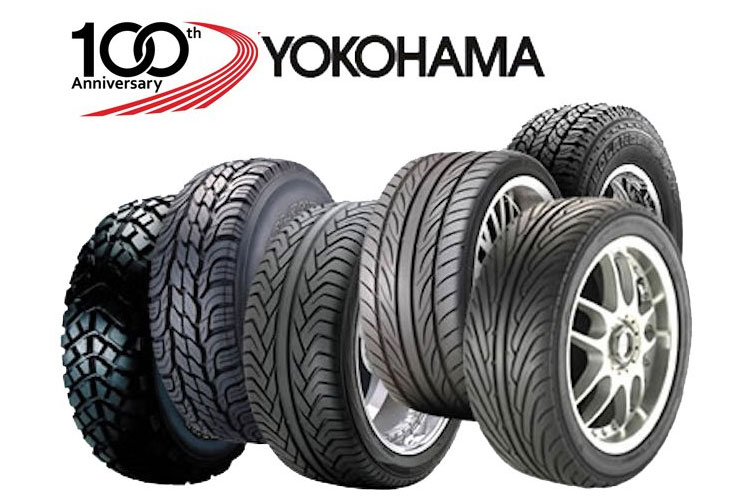 in turns like on rails, it does not react at all to a small track on the Moscow Ring Road! I advise, rubber-space!
in turns like on rails, it does not react at all to a small track on the Moscow Ring Road! I advise, rubber-space!
Defects
null
is quiet, in a big puddle when I was at 70 I strained, but in vain, the rubber swallowed it and spit it out, it writes turns perfectly, I even looked at the characteristics of my car somehow differently, the car has changed! highly recommend!
Read review
10 reviews Felix
Tires Yokohama Geolandar SUV G055
I went on vacation for 2000 km, and there I went to the mountains on sharp stones and large boulders.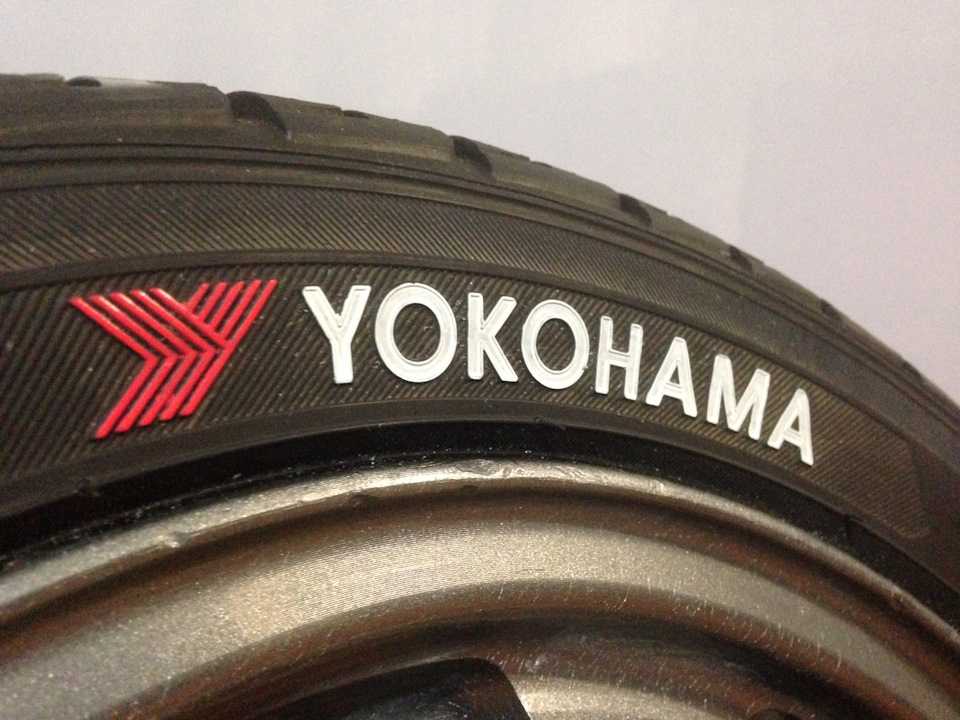 They hold the road well at speed on asphalt, including wet, and off-road
They hold the road well at speed on asphalt, including wet, and off-road
Read review
6 reviews Sergey
Tires Yokohama Geolandar A/T G015
Advantages
Excellent tires.
Shortcomings
No shortcomings were found during 14 days of use.
I read a lot about rubber, but I came to the conclusion that until you try it yourself you will not understand its pros and cons, the patency on black soil is good, it gets a little washed out on loam, driving on asphalt is up to 120 km / h.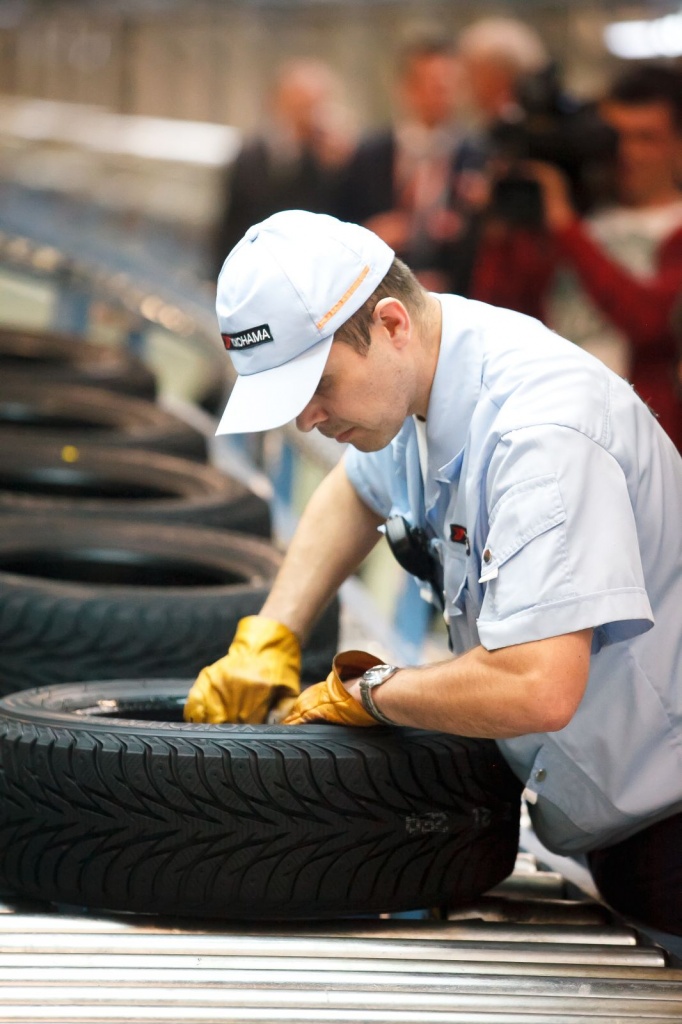 Comfortable. Noise is moderate, it all depends on the soundproofing of the car.
Comfortable. Noise is moderate, it all depends on the soundproofing of the car.
Read review
Eugene recommends Yokohama ice guard stud ig65
Safety
Comfort
Economy
Snow
Ice
Model: ice guard stud ig65
Season: Winter studded
Excellent paddling in the snow and good starting from the icy surface. Not a single spike was lost all last winter. Now put the rubber, looks like fresh.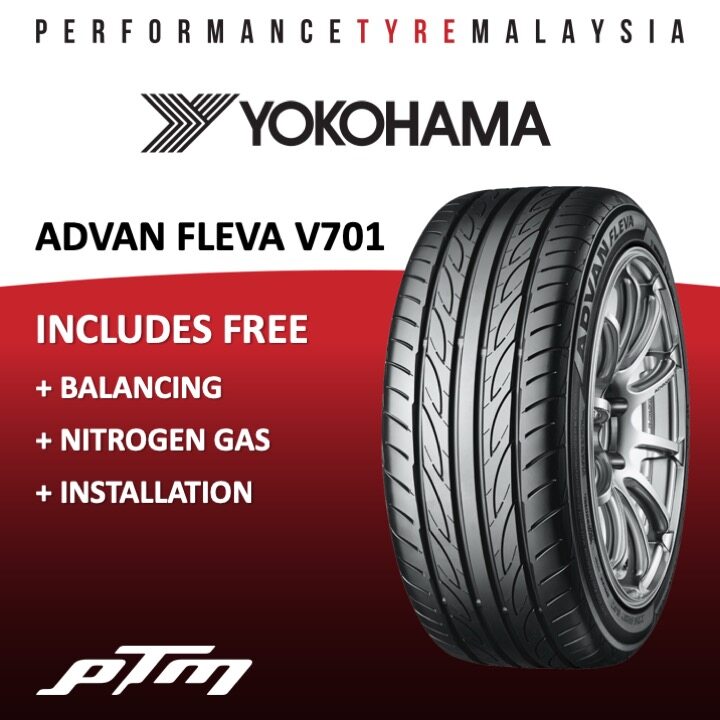 The rubber is not kotsany, consider the tread has not worn off.
The rubber is not kotsany, consider the tread has not worn off.
All reviews about ice guard stud ig65
Dmitriy recommends Yokohama ice guard g075
Safety
Comfort
Economy
Snow
Ice
Model: ice guard g075
Season: All season
Tires delivered 2 weeks ago. The flight is normal. The grip on frozen moisture is quite good, at 5. The noise is also at 5. The steering wheel has become lighter. Comfort in the car has increased both in terms of taxiing and sensations when driving on bad asphalt. Waiting for snow, but now I can say that the tires are worth the money.
Waiting for snow, but now I can say that the tires are worth the money.
All reviews about ice guard g075
Oleg Popov recommends Yokohama Ice Guard stud IG65
Safety
Comfort
Economy
Snow
Ice
Model: Ice Guard stud IG65
Season: Winter studded
The rubber fascinated me with how strong its grip. I checked it specially even on an icy road - it rides excellently. On snow and wet asphalt, everything is also good, there is no aquaplaning, so the car just rides and does not float.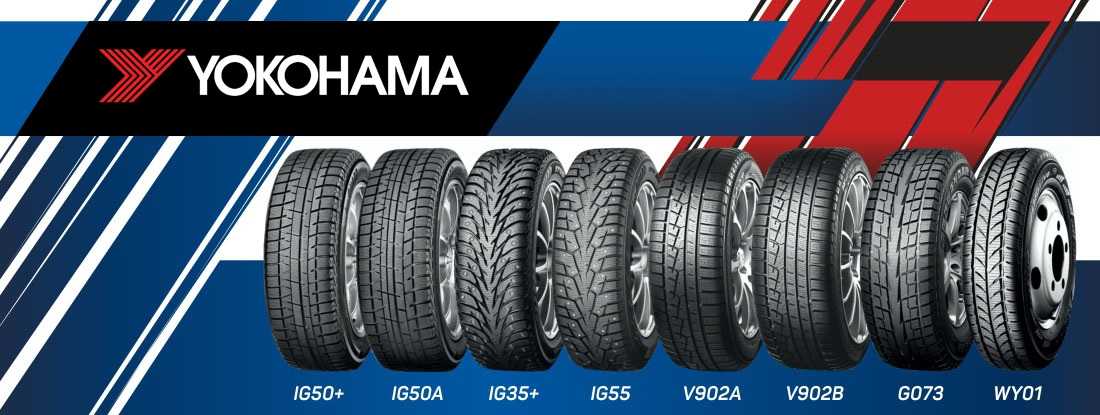
All reviews about Ice Guard stud IG65
Mstislav Popov recommends Yokohama ice guard g075
Safety
Comfort
Economy
Snow
Ice
Model: ice guard g075
Season: All-weather
Quality rubber, and at an affordable price. If you do not accelerate too much, then the tires will not make noise at all. On urban asphalt, a car with such tires is excellent. Surprised how well it rides on ice.
All reviews about ice guard g075
Ivan Ivanov recommends Yokohama ice guard ig60
Safety
Comfort
Economy
Snow
Ice
Model: ice guard ig60
Season: All season
I use IG60 for two seasons in total. About rubber, I can say that it has a good braking distance, low noise level. It rides normally on ice, but it’s better to drive on an icy road, not forgetting about accuracy. It rolls on asphalt with dignity, both cleared of snow and clogged with snow.
All reviews about ice guard ig60
Anton Fedotov recommends Yokohama ice guard stud ig65
Safety
Comfort
Economy
Snow
Ice
Model: ice guard stud ig65
Season: Winter studded
The only drawback that I immediately noticed about tires is noise.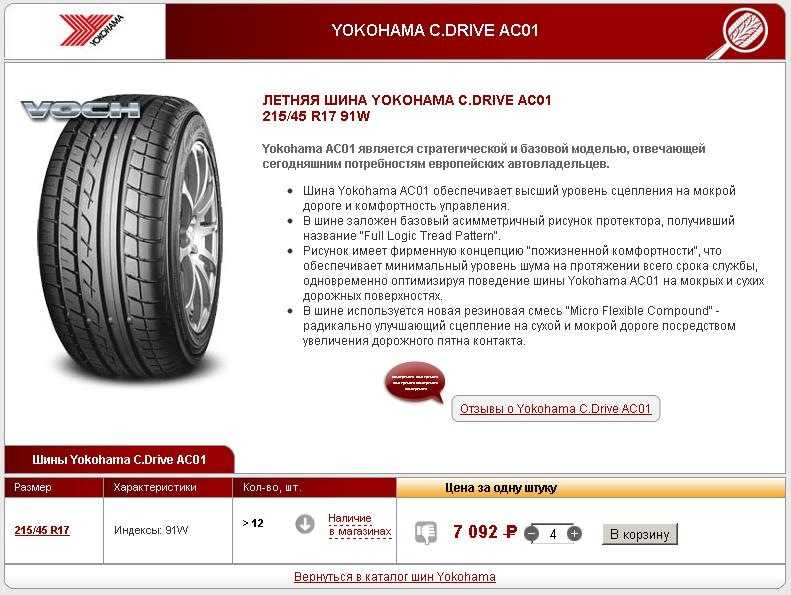 Initially, as soon as they put rustled. Fortunately, after some time, having run them in properly, these unpleasant sounds disappeared. And I didn't find any more flaws. Of the advantages, I will single out strong grip and excellent wear resistance. So be patient and rubber will pay back more than.
Initially, as soon as they put rustled. Fortunately, after some time, having run them in properly, these unpleasant sounds disappeared. And I didn't find any more flaws. Of the advantages, I will single out strong grip and excellent wear resistance. So be patient and rubber will pay back more than.
All reviews about ice guard stud ig65
Andrey Vernik recommends Yokohama Ice Guard stud IG65
Safety
Comfort
Economy
Snow
Ice
Model: Ice Guard stud IG65
Season: Winter studded
Handles like summer.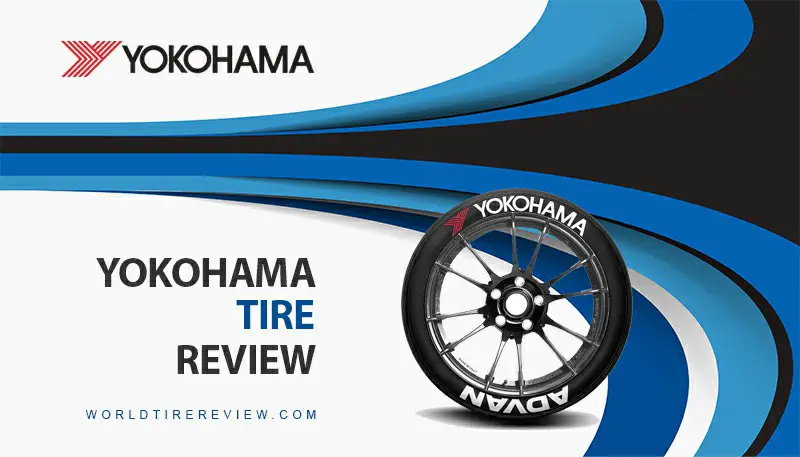 I didn’t ride on snowdrifts to check, but it was comfortable to drive on snowy asphalt with wet snow. It feels like with such tires the car drives along the highway in winter, as if I were riding in the summer. The tires are definitely worth the money.
I didn’t ride on snowdrifts to check, but it was comfortable to drive on snowy asphalt with wet snow. It feels like with such tires the car drives along the highway in winter, as if I were riding in the summer. The tires are definitely worth the money.
All reviews about Ice Guard stud IG65
Kirill recommends Yokohama ice guard ig60
Safety
Comfort
Economy
Snow
Ice
Model: ice guard ig60
Season: All-weather
I bought the kit new, even with the smell of fresh rubber. 1 winter - 7000 km mileage. Quiet in operation. Confidently holds a thin layer of snow with ice underneath. From the manufacturer, a 1-year warranty against punctures and other troubles, but it will do before winter. But the truth and reasons to use it for 1 season did not appear. Is it good? I think yes.
1 winter - 7000 km mileage. Quiet in operation. Confidently holds a thin layer of snow with ice underneath. From the manufacturer, a 1-year warranty against punctures and other troubles, but it will do before winter. But the truth and reasons to use it for 1 season did not appear. Is it good? I think yes.
All reviews about ice guard ig60
Vladislav recommends Yokohama ice guard stud ig35 plus
Safety
Comfort
Economy
Snow
Ice
Model: ice guard stud ig35 plus
Season: Winter studded
this one has worn off.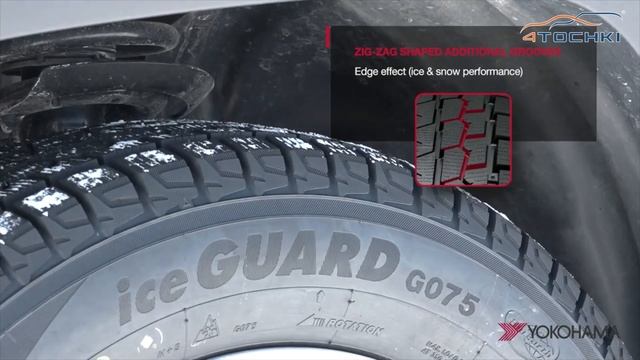 Went on it for 4 years, was not disappointed. Stud loss is minimal. Road grip is very good. In any weather, the tires did not fail. The protector was not clogged with any debris, the pattern works well.
Went on it for 4 years, was not disappointed. Stud loss is minimal. Road grip is very good. In any weather, the tires did not fail. The protector was not clogged with any debris, the pattern works well.
All reviews about ice guard stud ig35 plus
Anatoly recommends Yokohama ice guard stud ig65
Safety
Comfort
Economy
Snow
Ice
Model: ice guard stud ig65
Season: Winter studded
Skated winter on Geely Atlas. The noise level is not much louder than in summer.